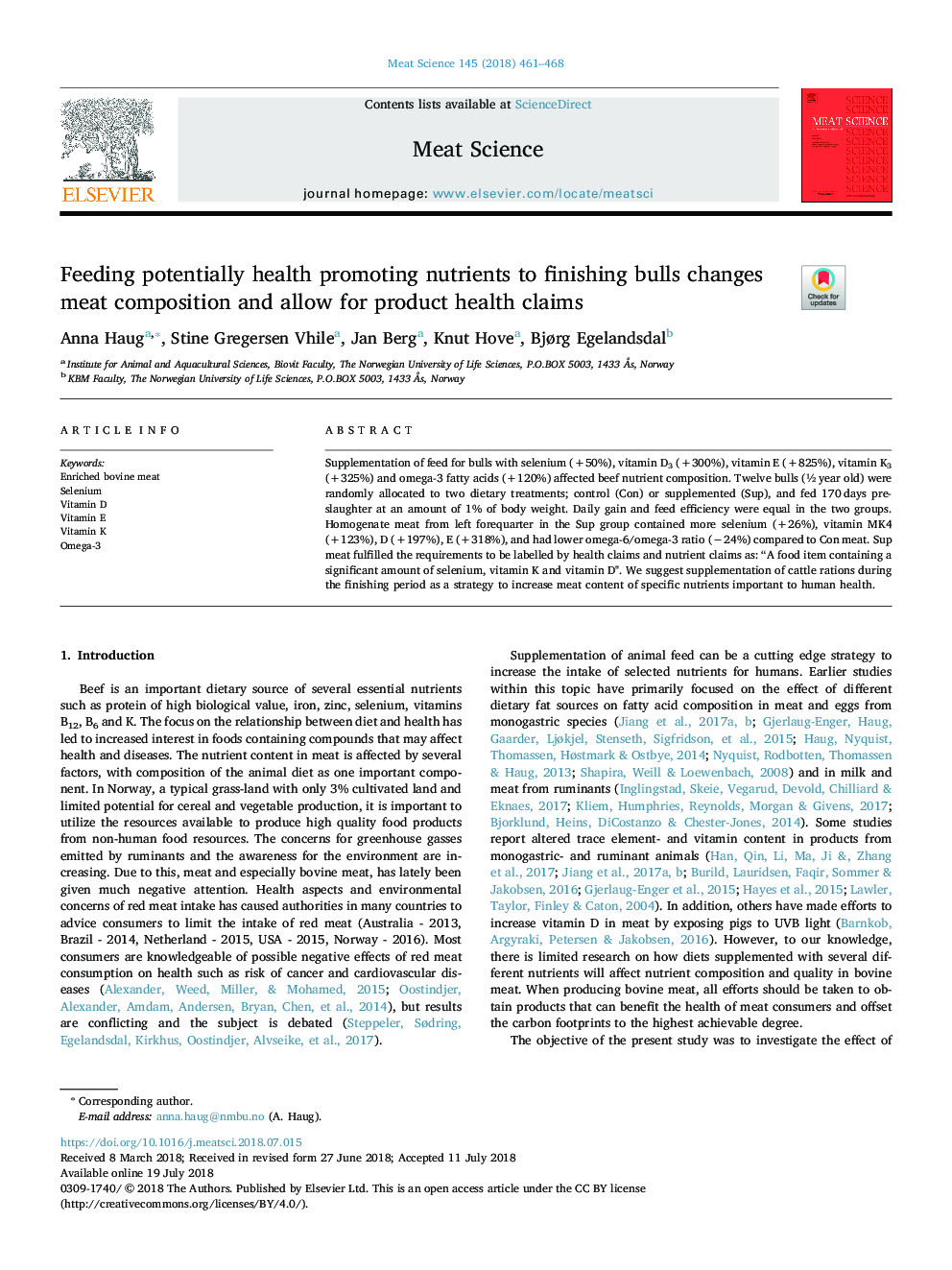| Article ID | Journal | Published Year | Pages | File Type |
|---|---|---|---|---|
| 8502515 | Meat Science | 2018 | 8 Pages |
Abstract
Supplementation of feed for bulls with selenium (+50%), vitamin D3 (+300%), vitamin E (+825%), vitamin K3 (+325%) and omega-3 fatty acids (+120%) affected beef nutrient composition. Twelve bulls (½â¯year old) were randomly allocated to two dietary treatments; control (Con) or supplemented (Sup), and fed 170â¯days pre-slaughter at an amount of 1% of body weight. Daily gain and feed efficiency were equal in the two groups. Homogenate meat from left forequarter in the Sup group contained more selenium (+26%), vitamin MK4 (+123%), D (+197%), E (+318%), and had lower omega-6/omega-3 ratio (â24%) compared to Con meat. Sup meat fulfilled the requirements to be labelled by health claims and nutrient claims as: “A food item containing a significant amount of selenium, vitamin K and vitamin D". We suggest supplementation of cattle rations during the finishing period as a strategy to increase meat content of specific nutrients important to human health.
Related Topics
Life Sciences
Agricultural and Biological Sciences
Food Science
Authors
Anna Haug, Stine Gregersen Vhile, Jan Berg, Knut Hove, Bjørg Egelandsdal,
